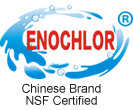08
2025
-
08
Comparing Durable TCCA 90% with Alternatives: What You Should Know
Comparing Durable TCCA 90% with Alternatives: What You Should Know In the realm of chemical products, trichloroisocyanuric acid (TCCA) stands out as a multifaceted compound, widely utilized in various applications, particularly in water treatment. This article delves into the characteristics, advantages, and disadvantages of Durable TCCA 90% compared to its alternatives, providing a thorough und
Comparing Durable TCCA 90% with Alternatives: What You Should Know
In the realm of chemical products, trichloroisocyanuric acid (TCCA) stands out as a multifaceted compound, widely utilized in various applications, particularly in water treatment. This article delves into the characteristics, advantages, and disadvantages of Durable TCCA 90% compared to its alternatives, providing a thorough understanding for professionals in the industry.
Table of Contents
- 1. Understanding TCCA: What Is It?
- 2. Advantages of Durable TCCA 90%
- 3. Applications of TCCA 90%
- 4. Alternatives to Durable TCCA 90%
- 5. Comparing Durability and Effectiveness
- 6. Safety Considerations for TCCA and Its Alternatives
- 7. Cost Analysis of TCCA 90% and Alternatives
- 8. Customer Reviews and Case Studies
- 9. Frequently Asked Questions
- 10. Conclusion
1. Understanding TCCA: What Is It?
TCCA, or trichloroisocyanuric acid, is a chlorine-containing compound primarily used as a disinfectant and a bleaching agent. It is especially effective in killing bacteria, viruses, and algae, making it a popular choice in swimming pool maintenance, water purification, and even industrial applications. With a high chlorine content of about 90%, TCCA is highly efficient in its disinfection capabilities, making it a go-to option for many industries.
2. Advantages of Durable TCCA 90%
Durable TCCA 90% offers several advantages that set it apart from other chemical products:
- High Stability: TCCA is known for its stability and longevity, allowing for effective treatment over extended periods.
- Ease of Use: Available in tablet form, TCCA is easy to handle and apply, making it user-friendly for both professionals and DIY enthusiasts.
- Effective Disinfection: Due to its high chlorine content, TCCA 90% ensures thorough disinfection, making it ideal for maintaining clean and safe water environments.
- Cost-Effective: With its long shelf life and effectiveness, TCCA 90% provides a cost-efficient solution for various applications.
3. Applications of TCCA 90%
The applications of Durable TCCA 90% are diverse, including:
- Swimming Pools: TCCA is widely used to sanitize pool water, ensuring safe swimming conditions by eliminating harmful pathogens.
- Water Treatment: It plays a crucial role in municipal and industrial water treatment, helping to purify drinking water and eliminate contaminants.
- Food Processing: TCCA is used in food processing facilities to disinfect equipment and surfaces, ensuring food safety and hygiene.
- Textile Industry: In textile manufacturing, TCCA serves as a bleaching agent, providing bright colors and clean fabrics.
4. Alternatives to Durable TCCA 90%
While TCCA 90% is highly regarded, several alternatives exist, each with its own set of advantages and disadvantages:
- Sodium Hypochlorite: Commonly known as bleach, sodium hypochlorite is effective for disinfection but can be unstable and less effective at high pH levels.
- Calcium Hypochlorite: This alternative also offers strong disinfection properties and is often used for swimming pools, but it might require more handling due to its powder form.
- Hydrogen Peroxide: An eco-friendly alternative, hydrogen peroxide has disinfection properties but may not be as effective as TCCA for certain applications.
5. Comparing Durability and Effectiveness
In terms of durability, Durable TCCA 90% has a significant edge over its alternatives. Its stability allows it to remain effective over extended periods, which is particularly crucial in environments where consistent disinfection is necessary. On the other hand, alternatives like sodium hypochlorite have shorter shelf lives and can degrade over time, reducing their efficacy.
6. Safety Considerations for TCCA and Its Alternatives
When handling chemical products, safety is paramount. Here are some safety considerations for TCCA and its alternatives:
- TCCA: Although effective, TCCA can be hazardous if ingested or if its dust is inhaled. Proper personal protective equipment (PPE) should be worn during handling.
- Sodium Hypochlorite: This compound is corrosive and can cause skin burns and respiratory issues if inhaled. Careful handling is essential.
- Calcium Hypochlorite: Similar to TCCA, this alternative requires precautions due to its reactivity and potential hazards.
7. Cost Analysis of TCCA 90% and Alternatives
Cost is a crucial factor when choosing between TCCA 90% and its alternatives. While TCCA might have a higher upfront cost, its longevity and effectiveness often lead to lower overall costs in the long run. In contrast, alternatives may seem cheaper initially but can require more frequent applications, leading to greater expenses over time.
8. Customer Reviews and Case Studies
Customer feedback plays a vital role in understanding the real-world applications of Durable TCCA 90%. Many users report a noticeable improvement in water clarity and quality when using TCCA, particularly in swimming pools and industrial applications. Case studies also highlight successful implementations in municipal water treatment, showcasing TCCA's reliability and effectiveness.
9. Frequently Asked Questions
1. Is TCCA 90% safe for swimming pools?
Yes, when used according to the manufacturer's guidelines, TCCA 90% is considered safe for swimming pools and effectively maintains water sanitation.
2. How should TCCA be stored?
TCCA should be stored in a cool, dry place away from direct sunlight and moisture to maintain its stability and effectiveness.
3. Can TCCA be used in drinking water treatment?
Yes, TCCA is safe for use in drinking water treatment, provided it is used within the recommended concentrations.
4. What is the shelf life of TCCA 90%?
Durable TCCA 90% typically has a long shelf life of about 2-3 years when stored correctly.
5. Are there any environmental concerns with TCCA?
While TCCA is effective, improper handling and disposal can lead to environmental concerns. It is essential to follow local regulations regarding its use and disposal.
10. Conclusion
In conclusion, Durable TCCA 90% remains a leading choice in various applications due to its high stability, effectiveness, and cost-efficiency. While alternatives exist, they often come with their own set of limitations. By understanding the characteristics, benefits, and drawbacks of TCCA 90% compared to its alternatives, professionals in the industry can make informed decisions that best suit their needs. Ultimately, the choice between TCCA and its alternatives should be based on specific application requirements, safety considerations, and cost-effectiveness.
2023-04-23







